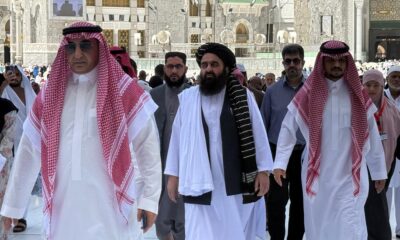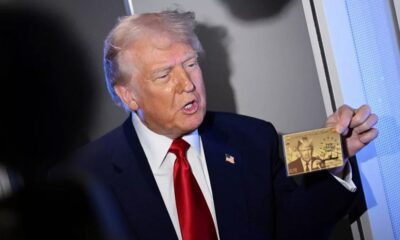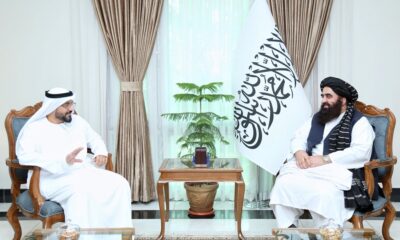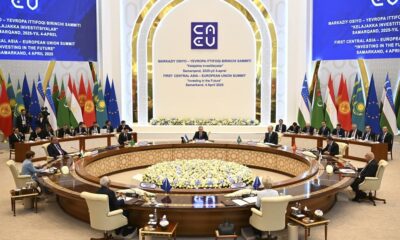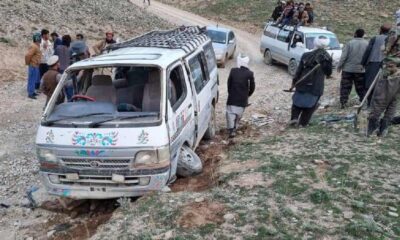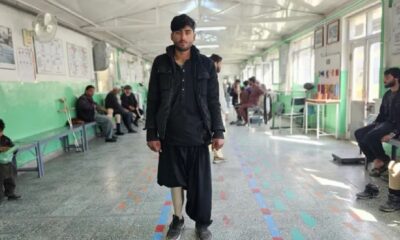Latest News
Karzai ‘invited’ IEA into Kabul to stop the chaos in August
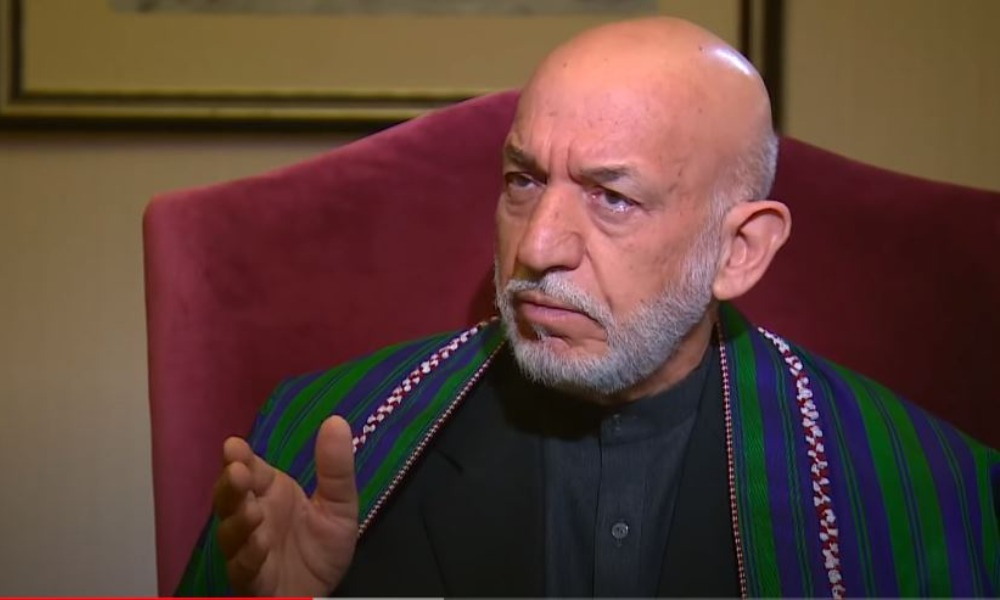
Former Afghan President Hamid Karzai offered insights into the secret and sudden departure of Afghan President Ashraf Ghani on August 15 and said he “invited” the Islamic Emirate of Afghanistan (IEA) to enter Kabul.
In an interview with the Associated Press, Karzai said he issued the invitation in order “to protect the population so that the country, the city doesn’t fall into chaos and the unwanted elements who would probably loot the country, loot shops.”
Karzai said that when Ghani left, his security officials also left. The then defense minister Bismillah Khan even asked Karzai if he wanted to leave Kabul when Karzai contacted him to know what remnants of the government still remained. It turned out there were none. Not even the Kabul police chief had remained, AP reported.
Karzai, who was the country’s president for 13 years after the IEA was first ousted in the wake of the 9/11 attacks, refused to leave.
Karzai said Ghani’s flight scuttled a last-minute push by himself, the government’s chief negotiator Abdullah Abdullah and the IEA leadership in Doha that would have seen the IEA enter the capital as part of a negotiated agreement.
The countdown to a possible deal began August 14, the day before the IEA came to power, AP reported.
Karzai and Abdullah met Ghani, and they agreed that they would leave for Doha the next day with a list of 15 others to negotiate a power-sharing agreement. The IEA were already on the outskirts of Kabul, but Karzai said the leadership in Qatar promised IE forces would remain outside the city until the deal was struck.
Early on the morning of August 15, Karzai said, he waited to draw up the list. The capital was fidgety, on edge. Rumors were swirling about an IEA takeover. Karzai called Doha. He was told the IEA would not enter the city.
At noon, the IEA called to say that “the government should stay in its positions and should not move that they have no intention to (go) into the city,” Karzai said. “I and others spoke to various officials and assurances were given to us that, yes, that was the case, that the Americans and the government forces were holding firm to the places (and) that Kabul would not fall.”
However, by about 2:45 pm it became apparent Ghani had fled the city. Karzai called the defense minister, called the interior minister, searched for the Kabul police chief. Everyone was gone. “There was no official present at all in the capital, no police chief, no corps commander, no other units. They had all left.”
Ghani’s own protection unit’s deputy chief called Karzai to come to the palace and take over the presidency. He declined, saying legally he had no right to the job, AP reported. Instead, the former president decided to make a public, televised message, with his children at his side “so that the Afghan people know that we are all here.”
Karzai was adamant that there would have been an agreement for a peaceful transition had Ghani remained in Kabul.
“Absolutely. Absolutely. That is what we were preparing for, what we were hoping (along) with the chairman of the peace council to go to Doha that evening, or the next morning, and to finalize the agreement,” he said. “And I believe the Taliban (IEA) leaders were also waiting for us in Doha for the same … objective, for the same purpose.”
Today, Karzai meets regularly with the IEA leadership and says the world must engage with them. Equally important, he said, is that Afghans have to come together. War has dominated Afghanistan for more than 40 years, and in the last 20 years “Afghans have suffered on all sides,” he said.
The former president has a plan. In his talks with the IEA, he is advocating the temporary resurrection of the constitution that governed when Afghanistan was a monarchy. The idea was also floated during earlier Doha talks, AP reported.
At the same time, a traditional Loya Jirga — a grand council of all Afghans, including women — would be convened. It would decide the country’s future, including a representative government, a constitution, a national flag, he told AP.
There’s no indication the IEA will accept his formula, though he says they have not rejected it in discussions.
Karzai said the world has to engage with the IEA. Afghanistan needs to operate. Government servants have to be paid. Health care facilities need to function, he told AP.
“Right now, they need to cooperate with the government in any form they can,” said Karzai who also bemoaned the unchallenged and sometimes wrong international perceptions of the IEA.
He cited claims that women and girls are not allowed outside their homes or require a male companion. “That’s not true. There are girls on the streets — women by themselves.” The situation on the ground in Kabul bears this out.
Asked to describe the IEA, Karzai said: “I would describe them as Afghans, but Afghans who have gone through a very difficult period in their lives as all other Afghans have done for the past 40 years.”
We “have been through an extremely difficult period of our history in which we, the Afghans, have made mistakes on all sides, in which the international community and those who interacted with us have made tremendous mistakes,” Karzai said. “It’s time for all of us to realize that, and to look back at the mistakes that we have all made and to make it better.”
Latest News
Acting foreign minister Muttaqi travels to Saudi Arabia
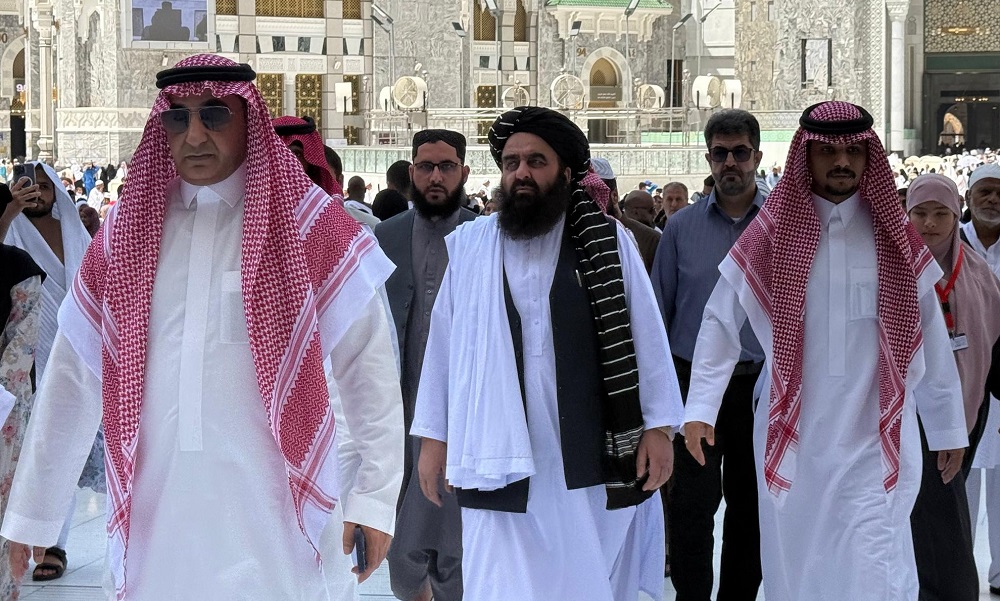
Acting Foreign Minister Amir Khan Muttaqi has traveled to Saudi Arabia, Islamic Emirate spokesman Zabihullah Mujahid said in a post on X on Friday.
Mujahid called the trip “an important step in further strengthening the friendly relations between the two countries.”
He also spoke about the “honorable reception and excellent protocol” extended by Saudi officials to Muttaqi, adding that this reception reflects “Saudi Arabia’s goodwill and positive relations” with the Islamic Emirate.
Latest News
Acting FM Muttaqi discusses trade and transit ties with UAE envoy in Kabul
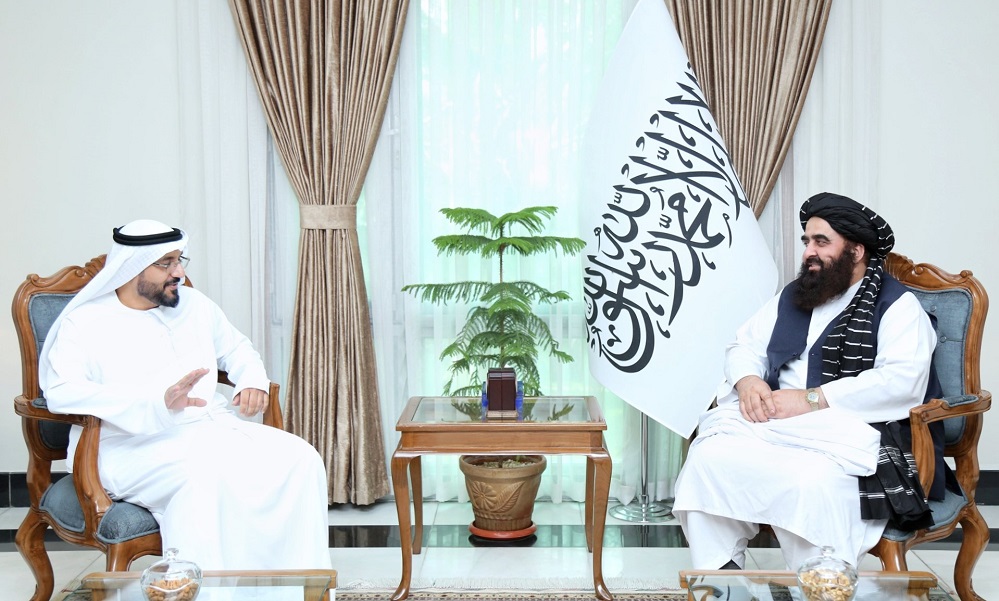
Acting Foreign Minister Amir Khan Muttaqi on Friday met with Saif Mohammad al-Katbi, UAE’s special representative for Afghanistan and discussed bilateral relations, trade, visa facilitation, transit development and regional issues, said Zia Ahmad Takal, the head of public relations at the foreign ministry.
In a statement, Takal stated that Muttaqi evaluated the relations between the Islamic Emirate and the UAE as positive and expressed hope that implementing the agreements made during the recent visit to the UAE would further develop the trade and transit relations between the two countries.
According to the statement, Mohammad al-Katbi also regarded the relations between the two countries as important and added that the purpose of his visit to Kabul was to follow up on the recent agreements between the two countries’ foreign ministers.
Latest News
EU-Central Asia summit calls for inclusive government in Afghanistan
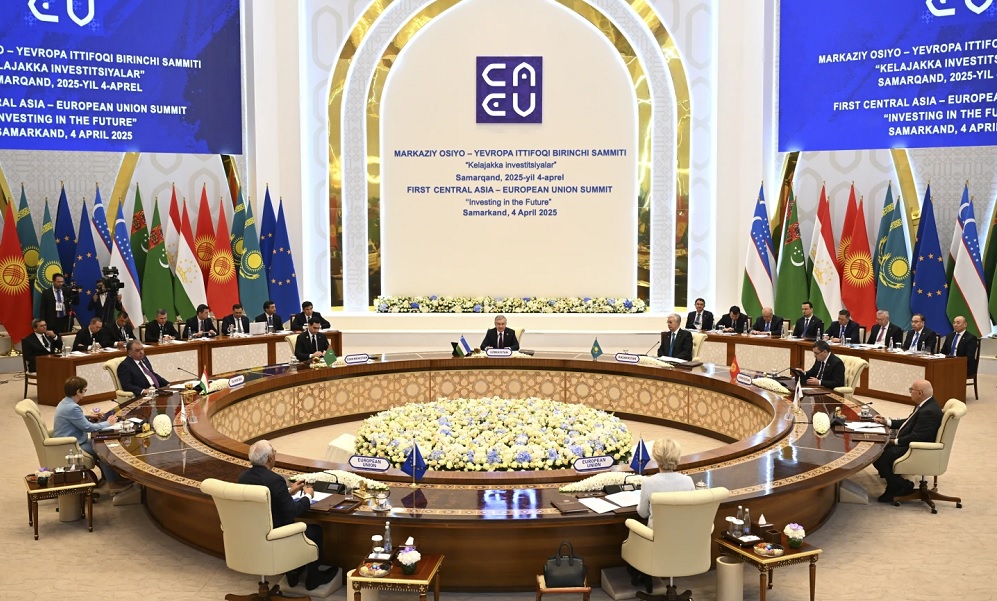
The leaders of the European Union and five Central Asian states called for an inclusive government in Afghanistan that respects human rights and fundamental freedoms in a summit in Samarkand city of Uzbekistan on Friday.
“We emphasised our strong commitment to see Afghanistan develop into a secure, stable and prosperous State with inclusive government and governance systems that respects the human rights and fundamental freedoms of all its citizens, including women, girls, persons belonging to ethnic and religious groups and minorities, is at peace with itself and its neighbours, and that respects its international obligations,” the summit’s declaration reads.
They also expressed concern over the humanitarian situation in Afghanistan and recognized the need to continue supporting the people of Afghanistan.
The summit also called for “full and equal access to education conforming to international standards and participation in public life of women and girls in Afghanistan.”
The Islamic Emirate of Afghanistan (IEA) has repeatedly claimed that the current government in Afghanistan is inclusive and that human rights are respected.
Samarkand meeting marked first EU-Central Asia summit.
The leaders of the European Union and five Central Asian countries including Kazakhstan, Tajikistan, Turkmenistan, Uzbekistan held their first summit on Friday to discuss ways to boost trade and other ties.
Addressing the summit, Uzbek President Shavkat Mirziyoyev expressed regret that the global community underestimates challenges emerging from Afghanistan.
“We believe it is important to actively engage the Afghan side in regional economic processes, also through implementation of investment and infrastructure projects, restoring the social sector.” Mirziyoyev said. “We hope for understanding and support in facilitating the international community’s constructive dialogue with the Afghan authorities to meet the current commitments.”
-
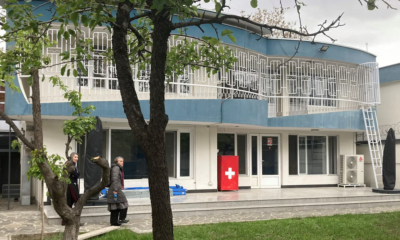
 Latest News5 days ago
Latest News5 days agoSwitzerland re-establishes presence in Kabul with humanitarian office
-
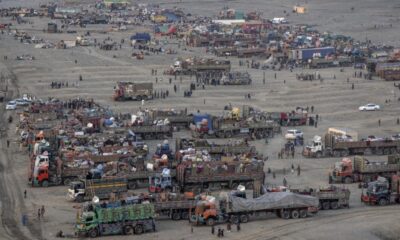
 Latest News5 days ago
Latest News5 days agoPakistan plans to expel 3 million Afghan refugees this year
-

 World5 days ago
World5 days agoSouth Korea, China, Japan seek regional trade amid Trump tariffs
-
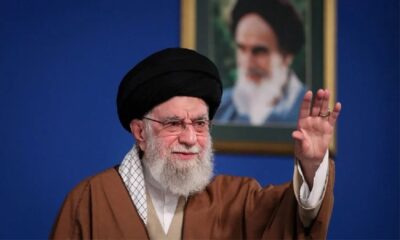
 Regional5 days ago
Regional5 days agoIran’s Khamenei warns of ‘strong’ response if US attacks
-

 Latest News4 days ago
Latest News4 days agoAfghanistan’s reconstruction is in the interest of EU: Uzbek president
-

 Latest News4 days ago
Latest News4 days agoUS won’t rest until all Americans detained in Afghanistan brought home: Rubio
-

 Latest News4 days ago
Latest News4 days agoBulgaria brings five people to trial over deaths of 18 Afghan migrants
-

 Latest News3 days ago
Latest News3 days agoMinistry of Economy calls on US to release Afghanistan’s frozen funds


